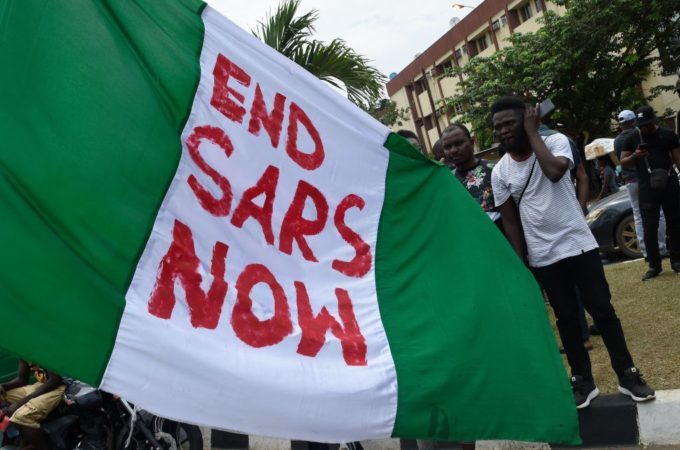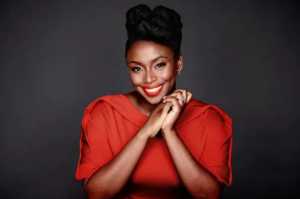
Chibundu Onuzo has called for members of the African diaspora and international supporters of the #BlackLivesMatter movement to support the #EndSARS movement in Nigeria.
In an op-ed published in The Guardian, Onuzo points out that the #EndSARS movement is “another iteration of the Black Lives Matter movement” seeing as both movements were sparked by indifference to the deaths of innocent Black individuals at the hands of police forces. Her piece suggests that in the same way structural racism has led to the ignorance of violence against African Americans in the United States, global structural racism has led to the global ignorance of Nigerian state violence against Nigerian citizens.
Noting that “Nigerians cried over the death of George Floyd,” Onuzo urges global Black solidarity in the face of police and state brutality against Nigerian youths who were peacefully protesting the abolition of Nigeria’s Special Anti-Robbery Squad (SARS).
Read an excerpt of her op-ed below.
***
Last Sunday, wearing a face shield, a protective mask and a waist-pouch full of hand sanitiser, I stood in front of the Nigerian high commission in London with hundreds of fellow Nigerians. We held up placards, raised our fists and chanted: “End Sars,” over and over again.
The cry had first begun in Nigeria, when a video emerged of special anti-robbery squad (Sars) police officers shooting a man on the streets of Lagos. Though the date of the video is unknown, as is the name of the victim, Nigerians are no strangers to police brutality. It has either happened to you, or to someone you know. The police are not your friends, we often joke, with our special blend of black humour.
And yet somehow, something was different this time. Musicians like Runtown and Falz tweeted about a protest. The next day, the streets were full of young people chanting “End Sars”. Almost everyone had a story about being assaulted by a Sars officer, of being extorted, sexually harassed, or wrongfully detained.
Soon, US celebrities such as P Diddy, Trey Songz and Viola Davis had picked up the hashtag and were tweeting their support. In the UK, actor John Boyega, who is of Nigerian descent, also used his social media page to support the protests. What these stars realised, before most of the western media did, was that this was another iteration of the Black Lives Matter movement.
Nigerian police officers are black, you may say. How can this be a BLM issue? Well, imagine New Zealand police officers shooting, maiming and killing unarmed white citizens because they were well dressed, because they had flashy phones, because they worked in the tech industry and therefore assumed they must be involved in fraud (all reasons used by Sars). Imagine if there were video footage of all these atrocities happening in leafy Christchurch. There would be global outrage. International sanctions. World leaders rushing to condemn these acts.
Yet the world seems curiously indifferent when the victims are black. Part of the reason African leaders get away with atrocities on African soil is because they know the world will turn a blind eye to them. Murderous despots will still be granted visas to Paris, London and New York. They will spend their loot on property and gaudy Rolexes, propping up foreign economies instead of building their own.
The Black Lives Matter movement began because the deaths of innocent African American men and women were ignored, in the same way the deaths of young Nigerians at the hands of Sars have been ignored.
Black lives matter everywhere that black lives are found: be it on the streets of the US, in rubber dinghies on the Mediterranean Sea, or in the towns and cities of Nigeria. Nigerians cried over the killing of George Floyd. And we hope in America, in Brazil, in Britain, in France, in China, in India, the African diaspora will also stand with us as we mourn the protester Jimoh Isiaq, who was shot last Saturday, and others killed by Sars.
…
Continue reading here.
********
Chibundu Onuzo’s photos from her instagram page.









COMMENTS -
Reader Interactions